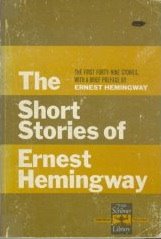 The front jacket of this book is enough to spark anyone's imagination. Every year since 1960 a group of elite scientists meets for six-weeks in top secret locations to solve highly classified defense problems. Hell yeah!
The front jacket of this book is enough to spark anyone's imagination. Every year since 1960 a group of elite scientists meets for six-weeks in top secret locations to solve highly classified defense problems. Hell yeah!For me, I think of darkly lit rooms, scientists in white coats, high-tech gadgets, and the fate of the world in the balance. I imagine state-of-the-art technology, even stater-of-the-art ideas, and complete tyrannical chaos over each and every one of them. What I imagine is a fantasy.
The best part of this book is on the front cover. The rest, sadly, is boring, static, and unfulfilling. The book filled with useless information about countless scientist's backgrounds and little or no information regarding any of the top secret studies the group "Jason" has worked on.
With paragraph headings like "This next part is far from inspiring" or "After that it is far from interesting," it becomes hard to get excited. I began this book with boyish fantasies of secrets and science fiction, but was quickly tamed by the reality that most of the cool stuff that has been worked on in the last 60 years is still highly classified and thus not in any book, nor anywhere for that matter.
Finkbeiner conducted most of her interviews over the phone for this book, and I can't help but feel that may have lent a staleness to the story's progression as well. The books suffers from it's exhaustiveness. There is too much information given about things that aren't interesting. It makes the few interesting portions zoom by.
The subjects of this book are a group of very highly qualified academic physicists, a group even Finbeiner reminds us is arrogant and snobby. And while they may do some great things for this country behind the scenes (like studies on aging nuclear weapons, how to dismantle them safely, etc.), those arrogant snobs make for terrible bedside reading.



